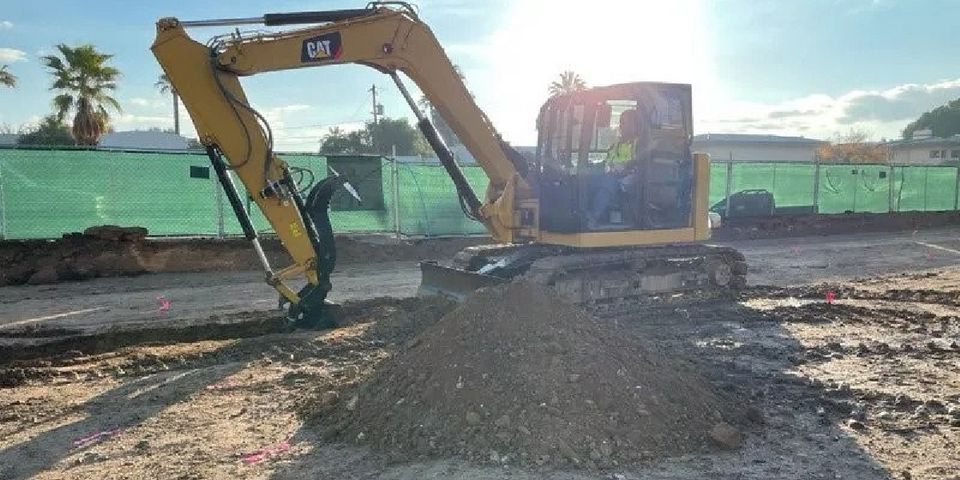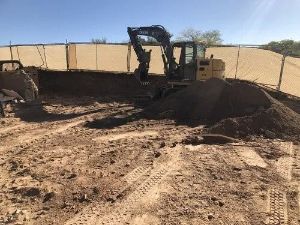What's the Importance of Grading for a Construction Site?

The first step in any construction is site preparation. Depending on the project, this might include removing impediments like trees and boulders or excavating and removing soil to accommodate a foundation. However, one site preparation task necessary for any project is grading. In the simplest terms, construction grading is making the ground level. As a developer, here's what you should know about this essential step.
How Does Construction Grading Work?
Construction grading is typically done after a site has been excavated and prepared. A contractor will develop a grading plan, a detailed rendering of the site indicating the different elevations and slopes and the proposed changes.
The plan accounts for the existing slope of the property, the type of soil, the drainage requirements, and aesthetic concerns. Typically, construction grading plans are required and must be approved by local building authorities before the building can begin.

Once the plans are approved, the actual work takes place using heavy equipment. The crew will often scrape topsoil from one area and move it to another to create an even surface. In some cases, they'll bring in additional topsoil to fill low-lying areas and smooth the graded spots.
Every municipality has requirements for construction grading, so it's best to work with an experienced professional to ensure that the job is completed correctly. The unique features of your property may also require additional work to ensure compliance. For example, properties with a slope greater than 12 inches typically need retaining walls to prevent erosion.
Why Do You Need it for Your Project?
The primary reason for construction grading is to ensure proper drainage. If water doesn't flow away from the structure properly, it can cause significant foundation damage. Avoiding negative drainage—when water flows back toward the foundation instead of away—is a priority because the water can lead to cracks, leaks, and structural damage.
Grading construction sites also ensures the soil can bear the load of the structure without excessive settling or shifting. Professionals will evaluate the soil and compact it or make other adjustments to ensure the foundation can support the building.
Finally, grading can improve the aesthetics of a property. Depending on the site plan and the elements included in the construction—such as walkways, driveways, patios, or parking lots—additional grading may be necessary to achieve the desired look of the finished project.
If you're planning a construction project, contact Lazer Companies in Mesa, AZ, for excavation and construction grading services. For almost 20 years, this family-owned business has worked on residential and commercial projects, building a reputation for exceptional work and clear pricing. They'll ensure your site is ready to handle the demands of new construction. Call (480) 461-1701 to request an estimate, or visit their website to learn more about their services.
About the Business
Have a question? Ask the experts!
Send your question

